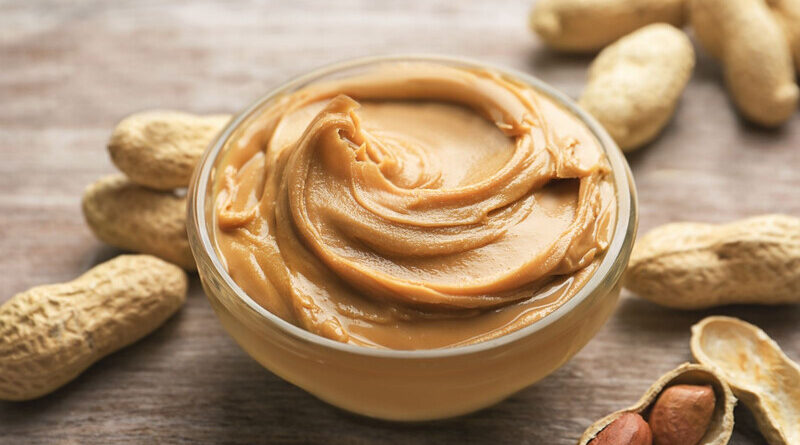Healthy Peanut Butter: Your Ultimate Guide to Nutrient Spreads
Beyond just being delicious, peanut butter is more than just a household favorite. Nutritious and adaptable, this spread can support a healthy way of living. We’ll explore the world of “healthy peanut butter” in this post, including its different varieties, nutritional advantages, and useful methods to include it in your diet. Regardless of your level of fitness passion, health consciousness, or simple peanut butter addiction, this post will offer insightful information to empower you to make wise decisions for a better version of yourself.
Nutritional Value of Peanut Butter
Nutrient-dense peanut butter has a wealth of protein, fiber, good fats, vitamins, and minerals. Two tablespoons of peanut butter provide about seven to eight grams of protein. Which is necessary for building and repairing muscle. Its heart-healthy lipids, which are mostly monounsaturated and polyunsaturated fats, reduce LDL cholesterol levels and promote heart health.
Furthermore, the fiber content facilitates fullness perception and aids in digestion. In addition to being high in antioxidants like resveratrol and vitamins like E, magnesium, and potassium, peanut butter also provides defense against oxidative stress. Because of its high-calorie density, you must watch your portion sizes to prevent consuming too many calories.
A tasty and easy approach to increase your nutritional intake and promote general health and well-being is to include peanut butter in your diet.
Health Benefits of Peanut Butter
Because of its high nutritious content, peanut butter has several health benefits. Its heart-healthy fats contribute to lowering LDL cholesterol levels, which lowers the risk of heart disease. Protein, fiber, and good fats work together to increase satiety, which helps with hunger control and weight management.
Furthermore, peanut butter is advantageous for those with diabetes or anyone looking for sustained energy throughout the day due to its capacity to normalize blood sugar levels. Because of its high protein content, which aids in muscle growth and repair. It is a beneficial complement to meals consumed after exercise.
Furthermore, antioxidants support general health by shielding cells from harm brought on by free radicals. Including peanut butter in your diet can improve the amount of nutrients you get and help you lead a healthy lifestyle.
Types of Peanut Butter (Natural vs. Processed)
There are two primary types of peanut butter available: natural and processed. Pure peanut butter is created without any additional sweets, hydrogenated oils, or preservatives. It is made from just peanuts and occasionally salt. Its texture is usually more rustic, and you have to mix it to get the natural oils in.
Conversely, stabilizers, hydrogenated oils, and additional sugars are frequently added to processed peanut butter to improve its flavor and texture. Because of the addition of additives, processed peanut butter is often regarded as less nutritious even though it may have a smoother consistency and a longer shelf life. Choose natural peanut butter if you want to savor its unadulterated, natural flavor without any extraneous ingredients.
Choosing the Healthiest One
Examining components and processing techniques is necessary to choose the healthiest peanut butter. Select natural types to avoid additional sweets and bad fats. They should only contain peanuts and possibly salt. Choose products with the fewest additives possible and be wary of processed foods that contain hydrogenated oils and preservatives.
For further quality assurance, think about choosing organic and non-GMO products. For those who suffer from allergies, be mindful of possible allergens and cross-contamination. In the end, selecting the healthiest peanut butter guarantees that you will benefit from its nutritional properties while avoiding needless ingredients and possible hazards.
Incorporating Peanut Butter into a Healthy Diet
Due to its many uses, peanut butter is a beneficial supplement to a balanced diet. A wholesome breakfast, spread it on whole-grain toast. For an added protein boost, integrate it into smoothies. For a filling dinner, combine it with high protein overnight oats. Additionally, peanut butter can be used in savory dishes like wraps or sauces to enhance their flavor.
It can also be used as a dip for fruits and vegetables. Peanut butter offers a plethora of delectable ways to improve your meals and snacks. While supporting your overall health and wellness goals thanks to its rich taste and nutritional advantages.
Peanut Butter in Weight Management and Fitness
It can help with weight management and fitness even though it is high in calories. Its protein, fiber, and healthy fats help regulate hunger and induce feelings of fullness, which supports weight loss attempts. Because of its high protein content, peanut butter is also a simple source of energy for working out, aiding in muscle growth and recuperation.
But because it contains a lot of calories, moderation is important, and portion control is crucial for people who are controlling their weight. People can benefit from peanut butter’s nutritious qualities while achieving their weight management objectives and improving their physical performance by including it in a well-balanced diet and exercise regimen.
Conclusion
In summary, peanut butter is a nutritional powerhouse that is rich in protein, fiber, good fats, vitamins, and minerals in addition to being a delectable spread. Many health advantages of this adaptable staple include blood sugar regulation, weight control, muscular growth, and heart health.
Choose natural peanut butter to avoid superfluous additives, and use peanut butter in your diet in a variety of inventive ways, such as spreading it on toast, adding it to smoothies, or using it as a dip or seasoning for both savory and sweet foods. Despite being high in calories, moderation and portion control are essential to reaping the benefits of it in terms of fitness and weight management.
You Can Read More About Peanut Butter
How to Make Low Carb Peanut Butter Protein Balls?
Unveiling the Latest Skippy Peanut Butter Nutrition Facts for 2024
Peanut Butter Powder Nutrition vs Peanut Butter: Ultimate Guide
